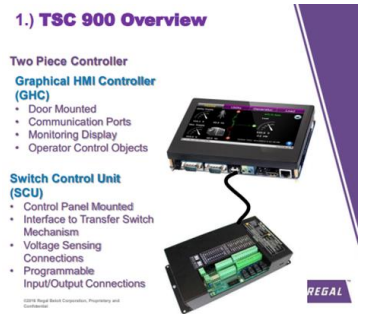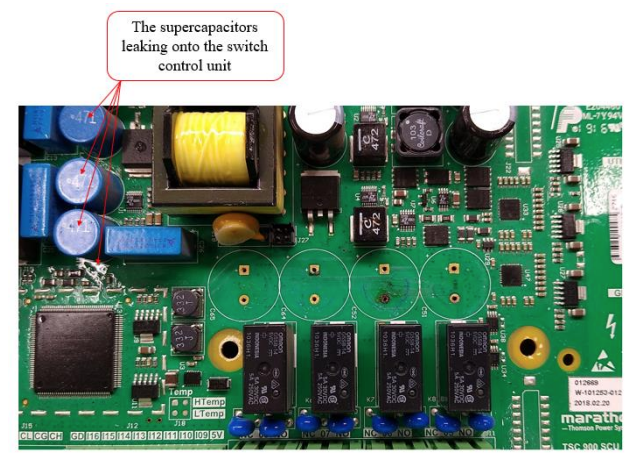TSC900 Defect Class Action Says Switch Fails to Automatically Stop Generator Once Utility Power Is Restored
Perez et al. v. Regal Rexnord Corporation et al.
Filed: August 22, 2023 ◆§ 3:23-cv-00572
A proposed class action alleges the Thomson Power Systems TSC900 Transfer Switch Controller is defective.
Wisconsin
A proposed class action alleges the Thomson Power Systems TSC900 Transfer Switch Controller is defective in that it will eventually fail to detect when utility power has been restored to a home or business and automatically stop a generator as intended.
Want to stay in the loop on class actions that matter to you? Sign up for ClassAction.org’s free weekly newsletter here.
 The 51-page complaint against Regal Rexnord Corporation and Thomson Technology Power Systems summarizes that although the TSC900 can automatically turn a generator on when utility power has failed, it fails to reliably turn that generator off when power is restored, essentially performing only half of its designed functions. Per the case, the companies have “affirmatively misled consumers” by representing the TSC900’s core function of operating reliably and without a generator owner’s assistance.
The 51-page complaint against Regal Rexnord Corporation and Thomson Technology Power Systems summarizes that although the TSC900 can automatically turn a generator on when utility power has failed, it fails to reliably turn that generator off when power is restored, essentially performing only half of its designed functions. Per the case, the companies have “affirmatively misled consumers” by representing the TSC900’s core function of operating reliably and without a generator owner’s assistance.
The lawsuit claims that rather than fix the defect, Regal and Thomson have continued to sell the faulty TSC900 switch without informing consumers of the problem, much less correcting it.
“In doing so, the Defendant released various firmware updates and news bulletins addressing symptoms of the defect, spoke with customers who experienced TSC900 failures, and ultimately removed the TSC900 from circulation in 2023—without ever disclosing the defect,” the filing says.
When a primary power source, such as utility power, fails and a generator is needed, the TSC900 is designed to automatically handle the switch between the two, the suit shares. Per the case, the TSC900 is meant to detect the power failure, transfer the load to the generator and connect the generator power to the structure.
When utility power comes back, the complaint continues, the TSC900 is supposed to then transfer the load back to the main power source and stop the generator from running. However, consumers nationwide have complained that the automatic transfer switch control essentially does only half the job, the lawsuit says.
“These consumers were left paying to inspect, diagnose, and replace defective TSC900s when the product failed,” the case claims, alleging the plaintiffs, two Florida consumers, collectively purchased “six TSC900s because their TSC900s repeatedly failed—often in the matter of months.”

According to the lawsuit, the supercapacitors with which the TSC900s are equipped—which provide a backup power source to run the switch itself during the time delay between utility power loss and a generator kicking on—do not function properly. This is because they are “inevitably exposed to over-voltage” given their placement in a series, which “produce[s] total voltage output levels that exceed each individual supercapacitor’s individual maximum power rating,” the filing shares.
When this occurs, the case says, an “acidic and corrosive solution leaks from the supercapacitors” and can damage the control unit that senses voltage from utility power and a generator.
“The result of this damage is that the switch control unit cannot detect when utility power is restored and thus cannot initiate the transfer from the generator back to the utility power source,” the suit summarizes.
The complaint states that automatic transfer switches are “not only recommended but also essential to prolonging the life of a generator and reducing costs for the consumer,” particularly because a generator left on for a prolonged period of time can overheat or break down. Moreover, switches such as the TSC900 are essential for safety reasons, especially if no one is available to physically turn a generator on and off, the filing says.
The lawsuit looks to cover all persons in the United States and Puerto Rico who bought one or more TSC900s made by Regal or Thomson, or any of their subsidiaries or affiliates, within the applicable statute of limitations period.
Get class action lawsuit news sent to your inbox – sign up for ClassAction.org’s free weekly newsletter here.
Video Game Addiction Lawsuits
If your child suffers from video game addiction — including Fortnite addiction or Roblox addiction — you may be able to take legal action. Gamers 18 to 22 may also qualify.
Learn more:Video Game Addiction Lawsuit
Depo-Provera Lawsuits
Anyone who received Depo-Provera or Depo-Provera SubQ injections and has been diagnosed with meningioma, a type of brain tumor, may be able to take legal action.
Read more: Depo-Provera Lawsuit
How Do I Join a Class Action Lawsuit?
Did you know there's usually nothing you need to do to join, sign up for, or add your name to new class action lawsuits when they're initially filed?
Read more here: How Do I Join a Class Action Lawsuit?
Stay Current
Sign Up For
Our Newsletter
New cases and investigations, settlement deadlines, and news straight to your inbox.
Before commenting, please review our comment policy.